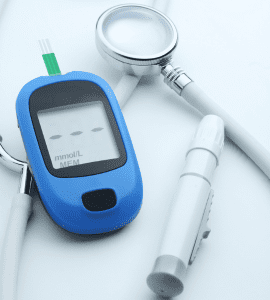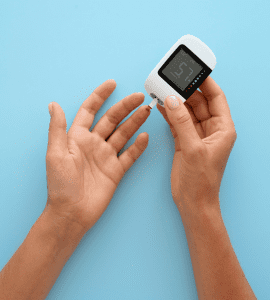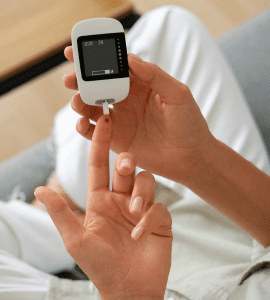In a time when diseases related to lifestyle are becoming increasingly common, Type 2 diabetes stands out as a major health issue worldwide. In the United States alone, about 38 million people, and approximately 90-95% of them have Type 2 Diabetes
Characterised by the body's ineffective use of insulin, it presents a burgeoning challenge, compounded by modern sedentary lifestyles and dietary excesses. This article delves into the multifaceted approach required for managing Type 2 diabetes, encompassing lifestyle modifications, medication adherence, and the crucial role of regular monitoring.
Understanding Type 2 Diabetes
Type 2 diabetes results from the body's resistance to insulin—a hormone crucial for regulating blood sugar levels—or its insufficient production. Unlike Type 1 diabetes, which is autoimmune, Type 2 often correlates with lifestyle factors, though genetics also play a contributory role. The condition not only elevates the risk of cardiovascular diseases but also can lead to complications such as neuropathy, nephropathy, and retinopathy, underscoring the imperative for effective management.
Lifestyle Interventions
Lifestyle adjustments form the cornerstone of Type 2 diabetes management. A balanced diet, low in processed foods and sugars, coupled with regular physical activity, has been shown to significantly improve glycaemic control. The CDC recommends at least 150 minutes of moderate-intensity activity per week, alongside dietary patterns that emphasise whole grains, lean proteins, and a plethora of fruits and vegetables. Such interventions not only aid in managing diabetes but also mitigate the risk of developing the condition.
Medicinal Management
For many, lifestyle changes are supplemented with medications to maintain blood sugar levels within a healthy range. Metformin remains the first-line medication, improving insulin sensitivity, with a plethora of other medications tailored to individual needs. Recent advancements have seen the introduction of SGLT2 inhibitors and GLP-1 receptor agonists, offering additional benefits such as weight loss and cardiovascular protection. Adherence to prescribed medication, in concert with lifestyle changes, is vital for effective disease management.
The Importance of Regular Monitoring
Monitoring blood glucose levels enables individuals to make informed decisions about diet, exercise, and medication. It empowers patients, allowing for immediate adjustments in response to fluctuations in blood sugar levels. Moreover, regular check-ups with healthcare professionals facilitate the early detection of complications, an essential aspect of long-term diabetes care.
Towards a Healthier Future
Managing Type 2 diabetes necessitates a comprehensive approach that integrates lifestyle modifications, medication adherence, and regular monitoring. By adopting a proactive stance towards health, individuals with Type 2 diabetes can lead fulfilling lives, minimising the risk of complications. For those navigating the complexities of this condition, support is available.
HealthDeliver.Asia offers a platform for individuals to access specialised care, fostering a community where effective management of Type 2 diabetes is not just a possibility, but a reality. Engaging with healthcare professionals, adhering to treatment plans, and embracing a healthy lifestyle are pivotal steps on the journey towards wellness.









